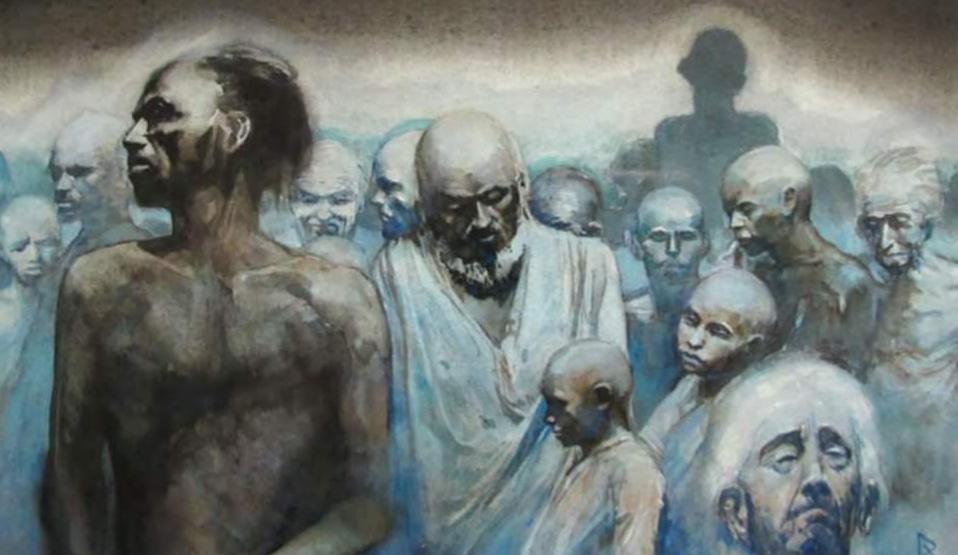Peeling Back the Problem of Homelessness:
So you see homeless people on the street.
The city puts them in housing, and gets them off the streets. But it doesn’t work. They still live dysfunctionally, or end up back on the streets, or progress no further in life.
- Well, why are they homeless? Because nearly all of them are drug addicts.
So the city takes them to rehab. But the long-term relapse rate is very high.
- Well, Why do they have drug issues? Because they have mental health issues.
So the city gets them therapy. But the vast majority of them remain broken, despite eventually discovering what their deep-seated problems are.
- Well, why do they have mental health issues? In most cases, its due to poverty, neglect, various forms of abuse, and trauma (particularly during their formative years).
Even if you did correct for (1-3) above, they still don’t know all the things one needs to do to be a productive adult.
- What is the result of these poor environmental issues and trauma? Their self-worth is broken at an early age. The lack of self-worth and poor environment causes the incremental life skills one learns on the path to maturity to be truncated or severely-warped. They never develop the skills that successful adults have.
Cue the opening quote from Anna Karenina.
- And finally, we can ask: Why did their parents allow this to happen? Because they lived in low-trust, poor environments. They were broken people themselves. Or they weren’t present.
The cycle has continued from one generation to the next.
To paraphrase Mark, they lack critical adult skills, such as: building trust in others, gaining trust of others, delaying gratification, money skills, punctuality, making a good impression, showing that you care, finding the motivation to do the work for a risky gain, etc.
For many of these people, everything is high time preference, to escape the pain of their reality. They get “addicted to the streets” as a justification for it all.
Curiously, Mark also gives an anecdotal success-rate of people straightening out their life (note: includes non-homeless people - roughly summed on all the videos he has done), with an estimate of about 4/5000 [2] .
The Conclusion:
Cities in North America have spent billions over the years, and the problems appear to be getting worse in larger cities (at least, those with more tolerant policies and generous amounts of handouts). As it is pointed out, you can give the homeless everything, but without sufficient self-worth and the desire to want to change, they very likely will not change.
Most homeless people cannot be “helped”, in the sense of making them re-join and become productive members of society. To give each one of them therapy, (productive) adult skills, rehab, and a sense of community would cost many billions of dollars[3]
Even if this sum was spent, there is no guarantee they believe they deserve it, or the life-coaching will even stick.
So the palliative care that society does give (overnight housing, public washrooms, soup kitchens, free clothes and supplies), is about the best we can do at a community level. There is no one weird trick that will make this all go away. The most effective thing we can do at a societal level is to help the next generation of children that are at risk, and try to stop the cycle from continuing.
Solutions at the Individual Level:
Mark’s words during his two interviews struck me, because it mirrored my own experiences. At one time, I lived in poor and precarious areas of a large city. I lived in a slummy apartment with room-mates and borderline homeless neighbours for a decade.
I saw all sorts of semi-homeless people and Precariats living on the fringes of society, in my time living there. I myself, was a Precariat for a long time. In my time living there, as I developed enough self-worth and stability to move to the next stage of my life, and along the way I made my own painful realisations:
The people around me simply won’t change until they have lost enough (like I did). Some will lose everything and still not want to change.
All the time I spent listening to them, giving them advice and trying to help them effectively amounted to nothing.
While this was going on, the homeless was ever present in my city. There were too many people to help, and I could barely take care of myself for most of the time. Like many people in the city, I became overwhelmed and numb to their plight. However, I at least developed the following rule to help a few of them:
Help the ones that look like they want to live, and still have the drive to escape.
Even-though Mark’s conclusion is damning, there are still homeless people out there that have enough life and self-worth left inside them to want to change and come back to society.
Regardless of ones socioeconomic status, these are the ones that - we as individuals - should first help out.
